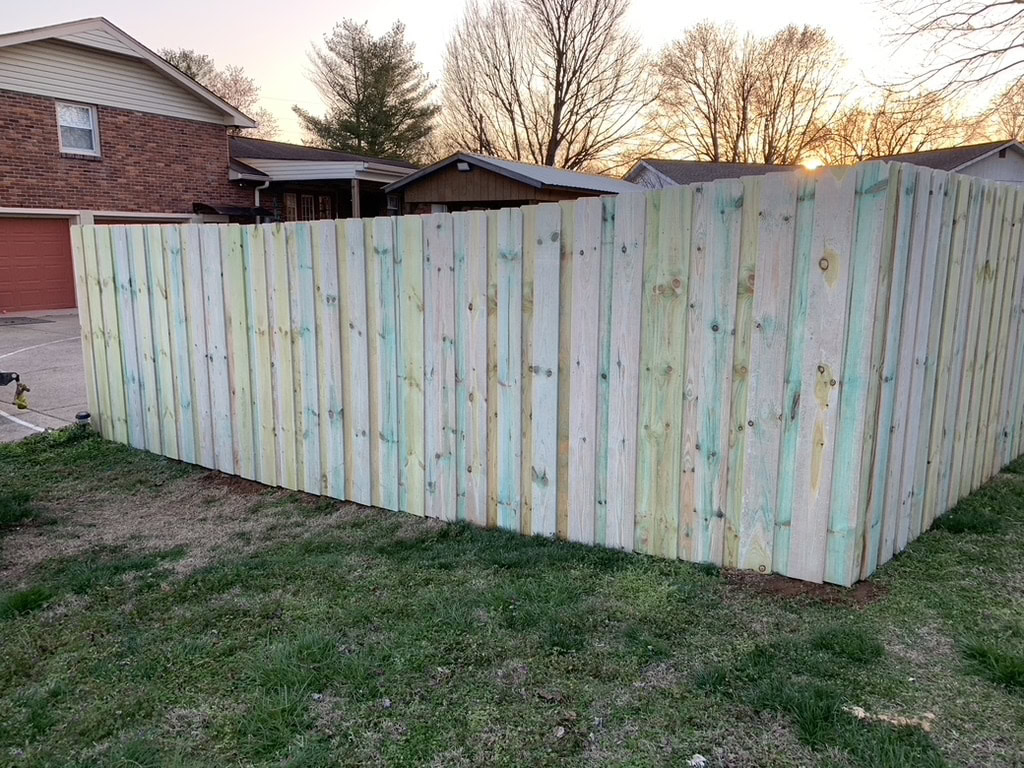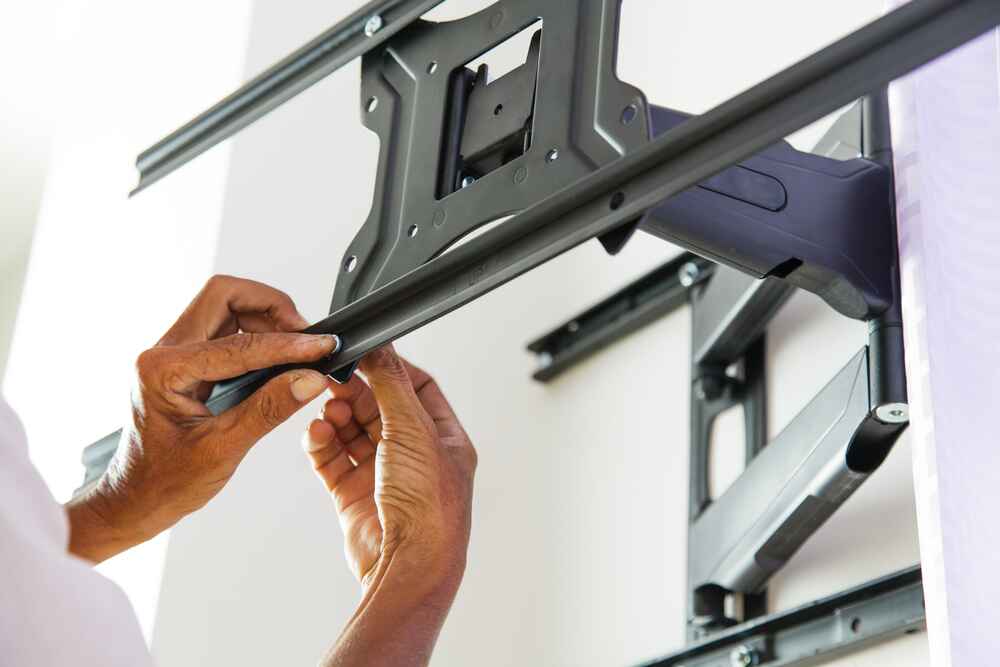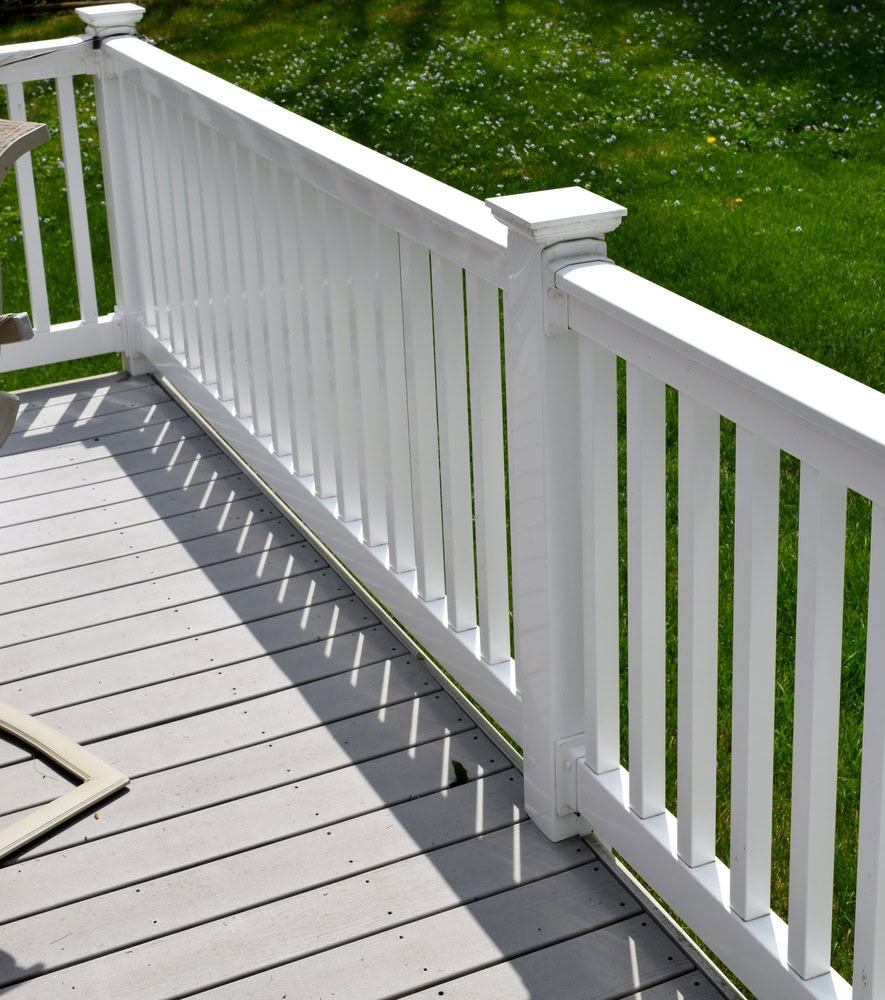Summary:
Why Most Fences Fail in Middle Tennessee Within 5 Years
Tennessee’s weather pattern creates a perfect storm for fence destruction. The combination of humid summers, freezing winters, and sudden temperature swings causes wood to expand and contract repeatedly, creating cracks where moisture penetrates.
Most fence contractors use installation methods designed for milder climates. They don’t account for Tennessee’s clay soil that shifts with moisture changes, or the fact that our humidity levels stay high enough to promote rot even in treated lumber. When posts aren’t set deep enough below the frost line or concrete footings aren’t properly designed for clay soil, you get the wobbly, leaning fences you see throughout Nashville and Franklin.
The Moisture Problem That Destroys Even Treated Wood
Here’s what most homeowners don’t realize: even pressure-treated lumber fails quickly when exposed to Tennessee’s moisture patterns. The treatment protects against insects and some rot, but it doesn’t prevent the expansion and contraction cycles that create gaps in the wood grain.
When fence pickets touch the ground—which happens in most installations—they absorb moisture directly from the soil. This moisture wicks up through the wood, creating perfect conditions for rot to start from the inside out. You won’t see the damage until the fence starts sagging or posts become loose.
The solution isn’t just better wood. It’s understanding how to create proper drainage around posts, ensuring adequate clearance between pickets and soil, and using installation techniques that account for Tennessee’s specific moisture challenges. Cedar naturally resists moisture better than pine, but even cedar fails without proper installation techniques.
Professional fence contractors who understand local conditions know to set posts in gravel-filled holes with proper drainage, maintain clearance between wood and soil, and use fasteners that won’t create moisture traps. These details add maybe 10% to installation costs but can double or triple your fence’s lifespan.
How Tennessee's Clay Soil Destroys Fence Posts
Davidson and Williamson County soil presents unique challenges that many fence installers underestimate. The clay-heavy soil expands significantly when wet and contracts when dry, creating tremendous pressure on fence posts.
During Tennessee’s wet seasons, clay soil can expand enough to crack concrete footings or push posts out of alignment. Then, during dry periods, the same soil shrinks and leaves gaps around posts, reducing stability. This cycle repeats every season, gradually loosening even well-installed posts.
The depth matters more than most homeowners realize. Tennessee’s frost line sits about 12 inches deep, but clay soil movement extends much deeper. Posts need to extend at least 24 inches below ground, preferably 30 inches for taller fences. The concrete footing needs to be designed to flex with soil movement rather than fighting it.
Smart contractors use specific concrete mixes and post-setting techniques developed for clay soil conditions. We also understand that different areas within the same county have different soil compositions. What works in Belle Meade might not work in Thompson’s Station. This local knowledge makes the difference between a fence that lasts 5 years and one that lasts 25 years.
Material Choices That Actually Survive Middle Tennessee Weather
Not all fence materials perform equally in Tennessee’s climate. The choices that work well in drier or more moderate climates often fail quickly here. Understanding which materials actually hold up to local conditions can save you from expensive replacements.
Cedar stands out as the best wood choice for Middle Tennessee, but only if it’s properly graded and installed. Western Red Cedar contains natural oils that resist moisture and insects, lasting 15-20 years even without staining. However, lower grades of cedar perform much worse, which is why some homeowners have bad experiences with cedar fences.
Why Cedar Outperforms Pine in Tennessee's Climate
Cedar’s natural resistance to moisture and insects makes it ideal for Tennessee’s humid conditions. The wood contains natural preservatives that pressure-treating tries to replicate artificially. While pressure-treated pine costs less upfront, cedar typically lasts twice as long in local conditions.
The key is getting the right grade of cedar. Construction-grade cedar costs only slightly more than pressure-treated pine but performs significantly better. Clear cedar costs more but can last 25-30 years with minimal maintenance. Many homeowners find that spending 20% more on cedar saves them from complete fence replacement for decades.
Cedar also weathers gracefully. While pressure-treated pine often looks shabby as the treatment chemicals leach out, cedar develops an attractive silver-gray patina that many homeowners prefer. This natural weathering actually helps protect the wood from moisture penetration.
Installation techniques matter even more with cedar. The wood needs proper clearance from soil and adequate ventilation to prevent moisture buildup. Posts should be set in gravel rather than concrete when possible, allowing natural drainage. These installation details determine whether your cedar fence lasts 15 years or 30 years.
Vinyl and Aluminum Options for Low-Maintenance Longevity
For homeowners wanting minimal maintenance, vinyl and aluminum fencing offer compelling alternatives to wood. Both materials handle Tennessee weather better than wood, though each has specific advantages and limitations.
Vinyl fencing performs exceptionally well in Middle Tennessee’s climate. It doesn’t rot, doesn’t need staining, and handles temperature swings without cracking when properly manufactured. Quality vinyl fences can last 20-30 years with nothing more than occasional cleaning. The key is choosing vinyl specifically rated for temperature extremes—cheaper vinyl becomes brittle in cold weather and can crack during Tennessee’s occasional ice storms.
Aluminum fencing offers the look of wrought iron without the maintenance issues. Modern aluminum fencing uses powder coating that resists fading and corrosion much better than paint. It handles Tennessee’s humidity without rust and won’t be damaged by ground contact like wood fencing. The main limitation is privacy—aluminum fencing works well for boundaries and security but doesn’t provide the visual screening that privacy fences offer.
Both materials require proper installation techniques. Vinyl posts need adequate concrete footings to prevent movement, and aluminum fencing needs posts rated for local wind loads. A professional installer familiar with local building codes and weather patterns ensures these materials perform as expected.
Finding Fence Contractors Who Understand Local Conditions
The difference between a 5-year fence and a 25-year fence often comes down to contractor expertise with local conditions. Many fence installers use generic techniques that work adequately in mild climates but fail in Tennessee’s demanding environment.
Look for contractors who can explain how they modify their installation techniques for local soil and weather conditions. They should understand Tennessee building codes, know proper post depths for clay soil, and use materials rated for local climate extremes. Most importantly, they should provide warranties that demonstrate confidence in their work lasting in Middle Tennessee conditions.
We at Tic Tac Tasks LLC bring this local expertise to every fence installation in Davidson and Williamson Counties. Our understanding of Tennessee’s unique challenges, combined with proven installation techniques, helps ensure your fence investment provides decades of reliable service.



